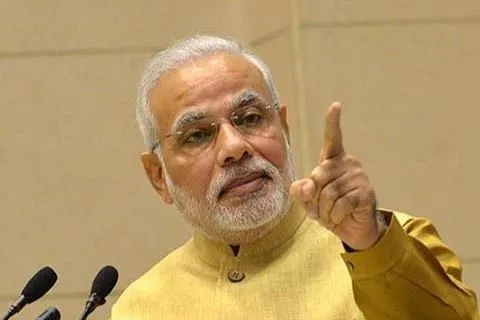New Delhi, Feb 22: Emphasising that environment is not just a global cause, but the personal and collective responsibility of every individual, Prime Minister Narendra Modi, in a message shared at the inaugural session of the 22nd edition of the World Sustainable Development Summit (WSDS) here on Wednesday, noted that “the way forward is through collectiveness rather than selectiveness.”
“Environment conservation is a commitment and not compulsion for India,” observed the Prime Minister, while underscoring the transition towards renewable and alternate sources of energy, and the adoption of technology and innovation measures to find solutions to urban challenges.
“We have adopted a multi-dimensional approach to chart a long-term roadmap for sustainable and environment-friendly lifestyle,” he added.
At the inaugural address of the three-day summit, being held on the theme of ‘Mainstreaming Sustainable Development and Climate Resilience for Collective Action’ by The Energy and Resources Institute (TERI), Guyana’s Vice President Bharrat Jagdeo made a clarion call to significantly focus on the principles of equity and justice at forums such as the G20 and the COPs.
He pointed out that it is impossible for many developing countries to achieve Sustainable Development Goals (SDGs) without financing.
“The small countries not only need climate finance, they need a reform of the global financial system to achieve sustainable development,” said Jagdeo.
He also pointed out that climate resilience and sustainable development are interlinked. “Most of the countries in the Caribbean are fiscally and debt-stressed. Unless these issues are addressed now by some of the multilateral agencies, these countries will never be able to have a sustainable, medium-term economic framework, leaving much less to address the catastrophic damage of weather related events,” Jagdeo added.
He underscored the criticality of balance in the discourse on sustainable development in order to find lasting solutions.
“We need to reduce the production of fossil fuels, we need carbon capture, utilisation and storage, and we need a mass transit into renewable energy. It is the combined action on all three fronts that will deliver lasting solutions. But often the debate is between the extremes, and sometimes it clouds the search for solutions. Balance is crucial,” observed Jagdeo.
In his opening address, Environment, Forest and Climate Change Minister Bhupender Yadav informed the audience that the second batch of cheetahs from South Africa have been successfully introduced in Kuno National Park in Madhya Pradesh on February 18.
“The vision of correcting ecological wrong into ecological harmony is taking shape and is being reflected in the grassroots,” he said.
The Environment Minister noted that combating climate change, biodiversity loss and land degradation transcends political considerations and is a shared global challenge. “India is contributing significantly to be a part of the solution,” he said.
India’s taking over the G20 Presidency has brought global attention to the discourse around sustainable development, especially in the UN critical decade of action, he noted.







